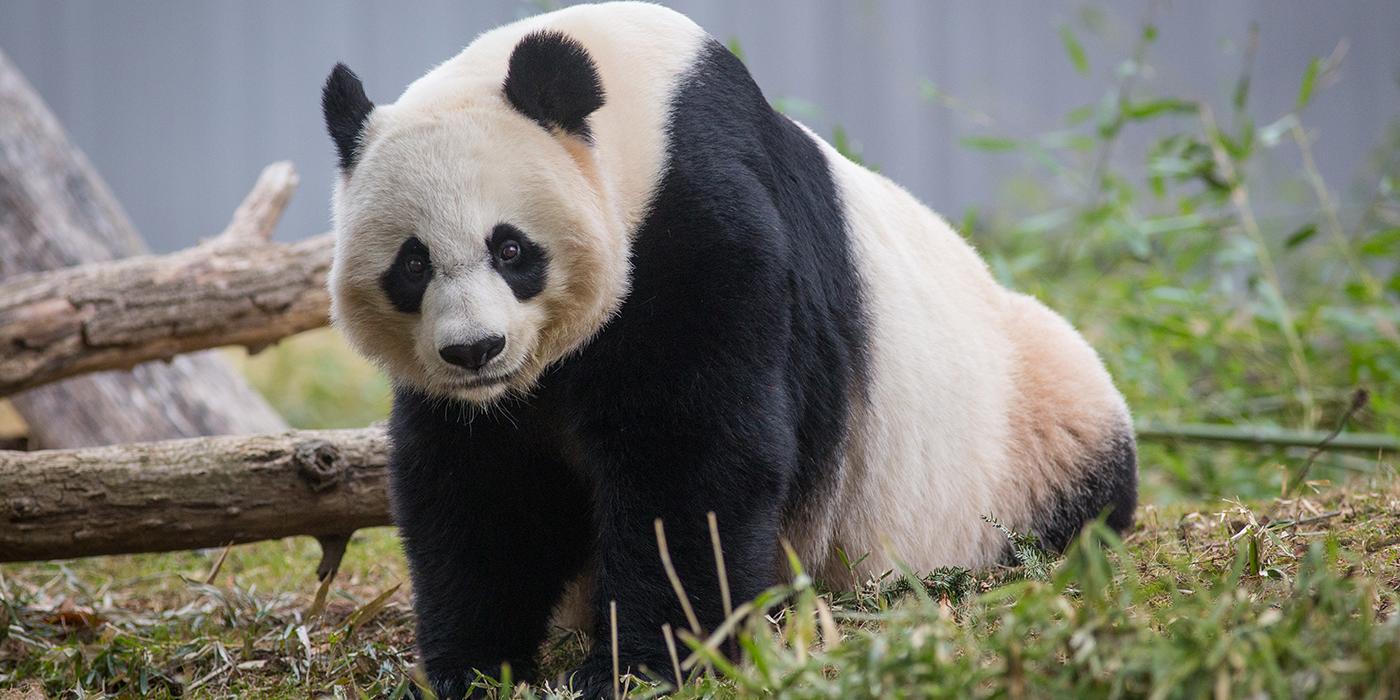Breeding Season is in the Air
Keepers have noticed some dramatic changes in Mei Xiang and Tian Tian's behavior during the past several days. On Saturday, Feb. 17, Mei Xiang started showing behavioral changes that indicate she may be going into estrus within the next few weeks. It is normal for Mei Xiang to exhibit these types of behavioral changes for a short time before she reaches peak estrus, which is the 24 to 72 hours out of the year that she is capable of conceiving a cub. Last Saturday, keepers immediately noticed that her behavior had changed when they arrived at the David M. Rubenstein Family Giant Panda Habitat. Mei Xiang chose to sleep in until after 7 a.m., which is unusual for her. She usually greets keepers at her door at 6:30 a.m. sharp, looking for a little morning snack and in eager anticipation of the bamboo breakfast in her yard. After Mei Xiang roused herself, she ignored her bamboo breakfast. Instead, she wandered around her yard scent-marking, which is a behavior that increases pre-estrus. She also vocalized at Tian Tian, but the vocalization was a moan, indicating that Mei Xiang is not interested in spending time in the same space as Tian Tian or breeding quite yet.
Tian Tian is always very perceptive and responsive to even subtle changes in Mei Xiang’s hormones that indicate she may be coming into estrus. Unlike female pandas who are only able to conceive a cub for a day or two out of each year, males can breed for several months. It is not uncommon for Tian Tian to display rut (breeding) behaviors from late fall through spring. However, last Saturday, his restless behavior was focused on Mei Xiang, which is different from the past several months. He spent much of the weekend pacing the fence line between their yards and constantly bleating. A bleat is a vocalization the pandas make to indicate that they are receptive to something or someone. He was very reluctant to move to areas of his enclosure without a direct line of sight to Mei Xiang. He even brought his food and toys over to the howdy mesh window so he could eat while watching her. After seeing the change in behavior from both bears, the panda team, which includes keepers and scientists, began preparing for a possible breeding season. As in years past, they will give Mei Xiang and Tian Tian the opportunity to breed naturally if they show affiliative behaviors towards each other. While keepers closely monitor their behavior, our endocrinologists at the Smithsonian Conservation Biology Institute will analyze Mei Xiang’s levels of urinary estrogen. Keepers collect daily urine samples from Mei Xiang’s enclosure for our endocrinologists to analyze. They are looking for a large spike in the levels of urinary estrogen followed by a dramatic fall back to normal or baseline levels. Mei Xiang will ovulate when her estrogen levels begin to fall, and scientists will perform an artificial insemination.
As the breeding season moves closer, Mei Xiang and Tian Tian will be on the panda cams more frequently. Our specially-trained volunteer behavior watchers, who operate the cams, will be collecting behavioral data on them to help the panda team. Viewers may have already noticed that Mei Xiang and Tian Tian have started vocalizing to each other overnight. During the next few weeks, these behaviors will likely increase in frequency and intensity.
Read more about estrus behaviors in our FAQ.Related Species:




